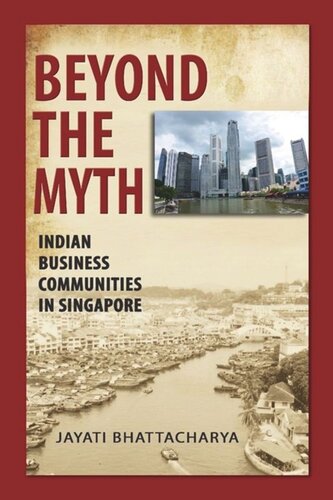

Most ebook files are in PDF format, so you can easily read them using various software such as Foxit Reader or directly on the Google Chrome browser.
Some ebook files are released by publishers in other formats such as .awz, .mobi, .epub, .fb2, etc. You may need to install specific software to read these formats on mobile/PC, such as Calibre.
Please read the tutorial at this link: https://ebookbell.com/faq
We offer FREE conversion to the popular formats you request; however, this may take some time. Therefore, right after payment, please email us, and we will try to provide the service as quickly as possible.
For some exceptional file formats or broken links (if any), please refrain from opening any disputes. Instead, email us first, and we will try to assist within a maximum of 6 hours.
EbookBell Team

4.7
26 reviewsThis book is a macro-study of Indian business communities in Singapore through different phases of their growth since colonial times. It goes beyond the conventional labour-history approach to study Indian immigrants to Southeast Asia, both in terms of themselves and their connections with the peoples' movements. It looks at how Indian business communities negotiated with others in the environments in which they found themselves and adapted to them in novel ways. It especially brings into focus the patterns and integration of the Indian networks in the large-scale transnational flows of capital, one of the least-studied aspects of the diaspora history in this part of the world. The complexities and overlapping interests of different groups of traders and businessmen form an interesting study of various aspects of these trading bodies, their methods of operation and their trade links, both within and outside Singapore. The book also charts their mobility and progress, in terms of both business and social status. The research aims to construct linear threads of linkages through generations and situate them in the larger framework and broader paradigms of business networks in Singapore. In shedding light on aspects of Indian connectivities to Southeast Asia, the narrative is particularly relevant in the context of India's economic rise. This study raises economic, social and cultural issues regarding the transition.